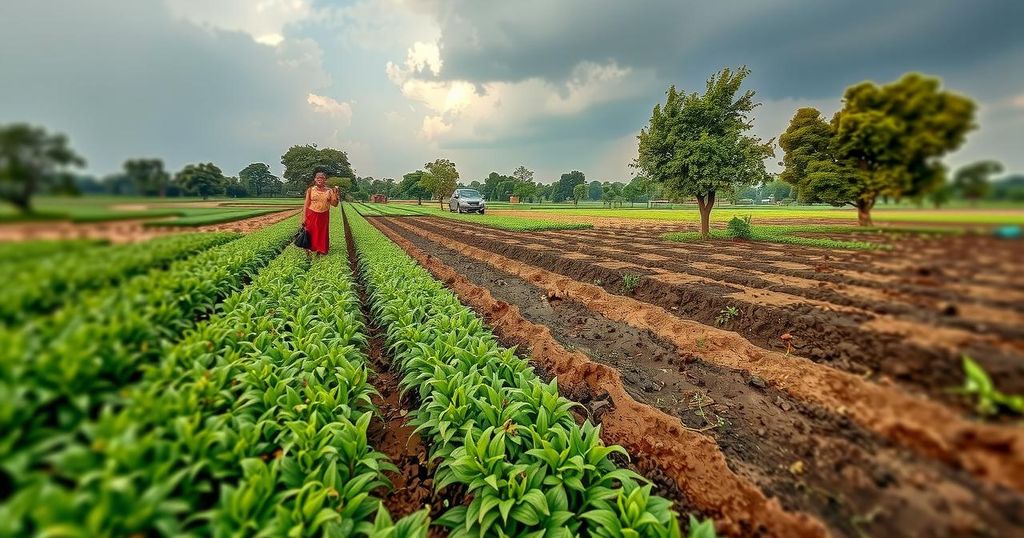Strengthening Plant Health Systems to Mitigate Climatic Threats in South Sudan
A study by CABI reveals that strengthening the plant health system in South Sudan is vital for reducing crop losses from invasive pests linked to climate change. New pests are emerging, threatening key crops, while farmers struggle with low access to plant health services. Recommendations include improving farmer education on pest management and strengthening institutional capacities.
A recent study conducted by the Centre for Agriculture and Bioscience International (CABI), published in the CABI Agriculture and Bioscience journal, highlights the vital importance of strengthening the plant health system in South Sudan as an effective strategy to mitigate crop losses from climate change-induced invasive pests. The research indicates that climate change has heightened the emergence of new agricultural pests and diseases that significantly affect local crops, including elegant grasshoppers, bollworms, cassava whiteflies, cutworms, African armyworms, stalk borers, and aphids. Among these, the fall armyworm (FAW) has been notably impactful. This pest, newly introduced to both South Sudan and Africa, threatens staple food crops such as maize, sorghum, and various vegetables. The Food and Agriculture Organization (FAO) reported in 2017 that the country stands as one of the global hotspots for climate change, experiencing more frequent and severe climatic events that jeopardize plant health and threaten the livelihoods of approximately 86% of rural households reliant on agriculture. Furthermore, a 2023 report from the UN Environmental Programme (UNEP) underscores the increasing incidence of crop pests linked to adverse climatic changes. Despite the challenges posed by invasive pests, a situational analysis of 960 farmers across Juba, Yambio, and Yei revealed a significant gap in access to plant health services. Many farmers depend on NGOs and UN agencies for support, highlighting the urgent need for robust government-led initiatives. The study indicates that while pests such as the papaya mealybug can cause devastating yield losses—up to 91% in papaya—the broader implications of plant diseases such as cassava brown streak disease and cassava mosaic disease reverberate throughout the economy, with losses in East and Central Africa estimated between $100 million and $1.9 to $2.7 billion annually. Furthermore, key challenges in South Sudan’s plant health system include weak institutional capacities and a lack of quality planting materials, which are often imported, preventing optimal growth. The research asserts that by improving plant health systems to incorporate strategic interventions and enhanced farmer education in integrated pest management techniques, South Sudan can significantly improve agricultural productivity and sustainability. This evolution from traditional practices to contemporary methodologies also positions agricultural stakeholders to better monitor and respond to emerging plant health issues.
The issue of crop loss due to climate change-induced pests is pressing in South Sudan, a country identified as a climate change hotspot. Farmers in South Sudan rely heavily on agriculture for their livelihoods, and the introduction of invasive pests due to climate shifts severely threatens this sector. The government has faced challenges in providing effective plant health services, necessitating involvement from NGOs and international agencies. Understanding the current pest situation, including the newly introduced fall armyworm and its impacts, is crucial for developing effective interventions.
The findings from the CABI study strongly advocate for the enhancement of plant health systems in South Sudan to combat the detrimental effects of invasive pests exacerbated by climate change. By addressing the gaps in plant health services, particularly through government-led initiatives and improved training for farmers, South Sudan could significantly mitigate crop losses, thereby bolstering food security and sustainable agricultural practices across the region.
Original Source: farmersreviewafrica.com




Post Comment